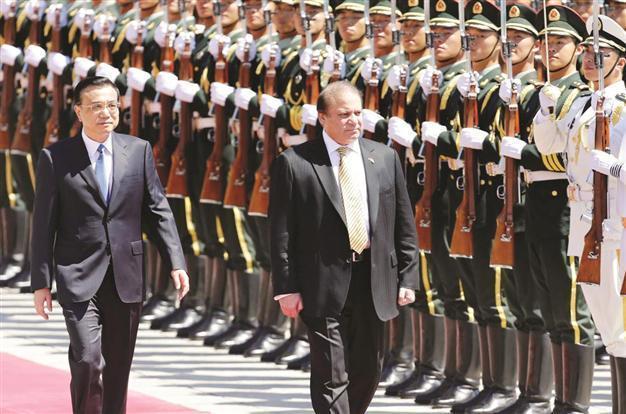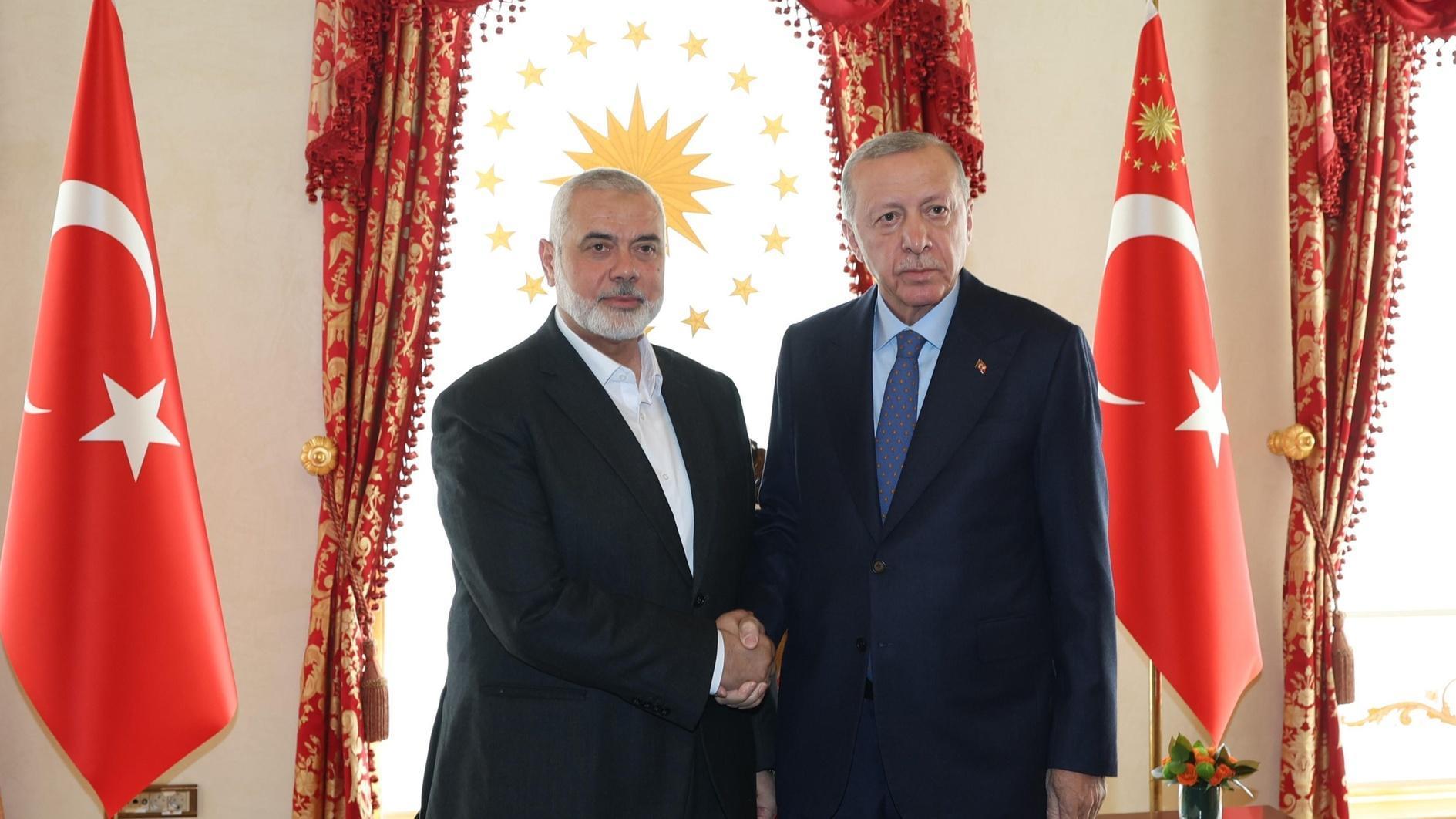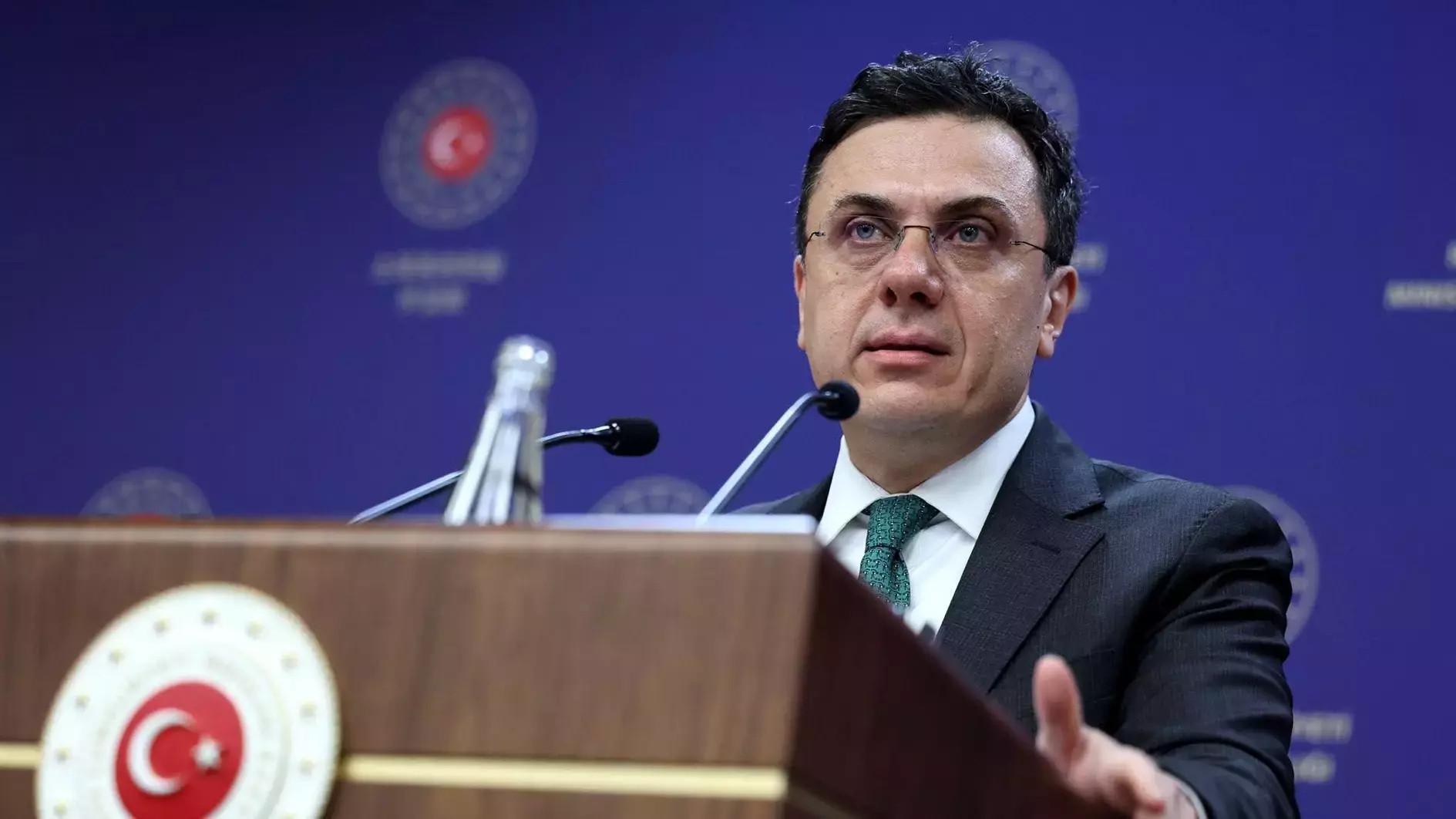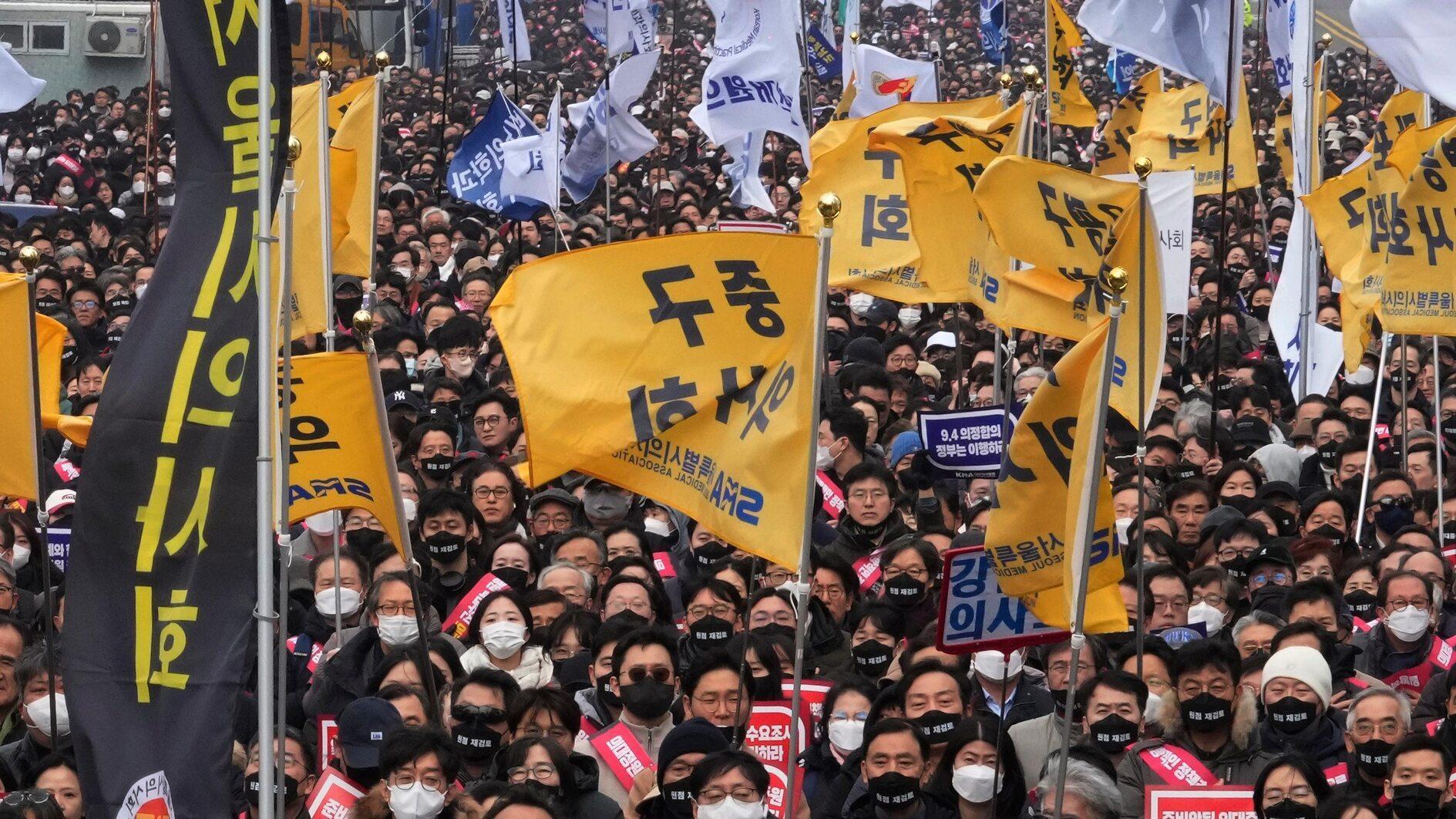Pakistan, China bolster ties as key transport link deal inked
BEIJING

Pakistan’s Prime Minister Nawaz Sharif (R) inspects the guard of honor with Chinese Premier Li Keqiang during a welcome ceremony outside the Great Hall of the People in Beijing. REUTERS photo
Pakistan’s Prime Minister Nawaz Sharif told his Chinese counterpart Li Keqiang on July 5 their countries’ relationship was “sweeter than honey,” during a visit to Beijing with economic ties at the top of the agenda.The two countries have set their sights on developing a transport link from northwestern China through rugged Pakistani mountains to the Arabian Sea.
Pakistan and China are close diplomatic and military allies and Sharif, who is on his first foreign trip since his May election, is looking to secure infrastructure projects to tackle a chronic energy crisis and economic malaise in his country.
“Let me tell you very candidly and very sincerely that what I am witnessing here on my visit to Beijing, it reminds me that our friendship is higher than the Himalayas and deeper than the deepest sea in the world, and sweeter than honey,” Sharif told Li at the start of their meeting, employing the typically effusive language with which the two nations describe their relationship.
A broad agreement for the “economic corridor” was among eight pacts signed following a meeting in Beijing between Li and Sharif. The transport link was described as a “long-term plan” to connect the Chinese city of Kashgar to the port of Gwadar, more than 2,000 kilometers away across the towering Karakoram mountains and Pakistan’s lawless Baluchistan province.
Earlier this year China took control of Pakistan’s Gwadar port, giving it access to the Arabian Sea and Strait of Hormuz, a gateway for a third of the world’s traded oil.
12,000 kilometer route
Located just outside the mouth of the Persian Gulf, Gwadar has the potential of vastly cutting the 12,000-kilometer route that Mideast oil supplies must now take to reach Chinese ports.
It could also provide an outlet for copper and other resources that Chinese firms plan to mine in Afghanistan, while offering a base for China’s navy to operate in the Indian Ocean in competition with India.
The visit is Sharif’s first to his country’s close ally since he returned to power last month, highlighting the importance Pakistan places on its 63-year-old relationship with China. The two cooperate closely in diplomatic and defense affairs, and share a common rival in their mutual neighbor and occasional military opponent India.
China provides Pakistan with aid and foreign investment, while Islamabad offers Beijing important diplomatic backing in the face of Muslim-majority nations who might otherwise criticize China’s handling of its Muslim population.
Pakistan is hoping to attract greater Chinese investment to revive its moribund economy beset by inefficiency, corruption, political instability, and chronic electricity shortages, while expanding two-way trade that exceeded $12 billion for the first time last year.
For its part, China wants Pakistan to crack down on insurgents from China’s Muslim Uighur minority who have taken refuge in Pakistan’s northwest alongside al-Qaeda-linked extremists.
Pakistan says it has killed or extradited several of those militants over the past few years, but acknowledges that some remain at large in the area.
















